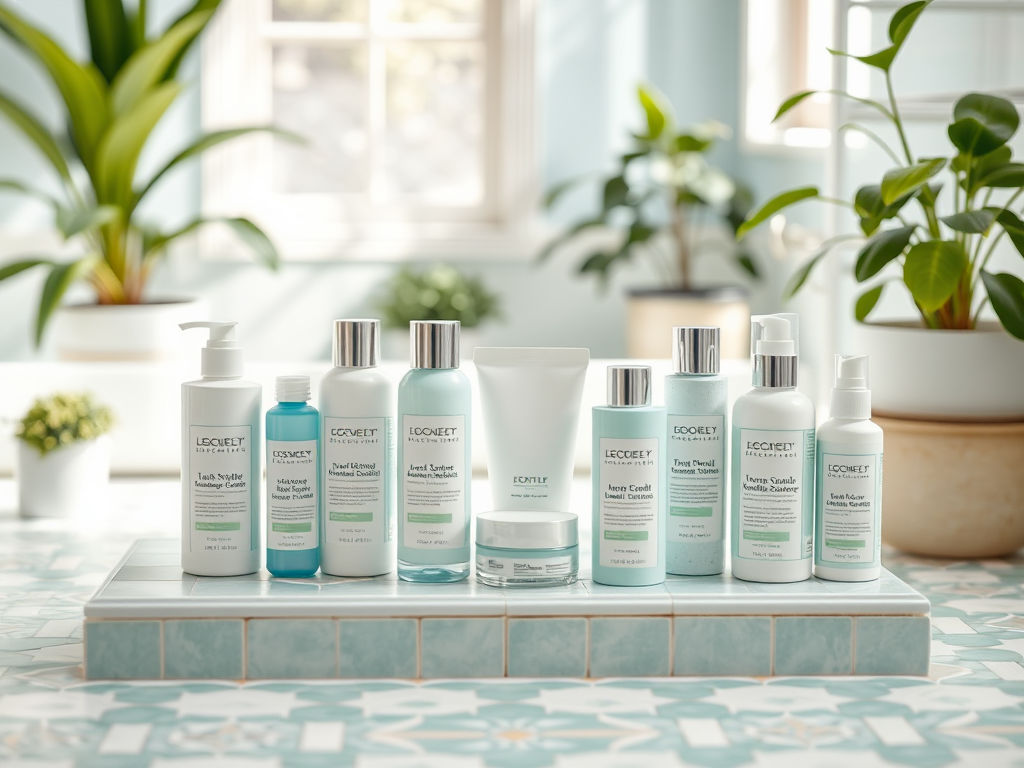Sensitive skin presents unique challenges, especially when it comes to maintaining a flawless complexion overnight. The right nighttime skincare routine can work wonders in nourishing and revitalizing your skin while you sleep. Many individuals with sensitive skin often struggle to find products that strike a balance between efficacy and gentleness. Therefore, understanding the specific needs of sensitive skin is crucial for recognizing what to include in your nighttime regimen. From selecting gentle cleansers to curating hydrating moisturizers, each step requires careful consideration. In this article, we will guide you through an effective nighttime skincare routine specifically tailored for sensitive skin.
Understanding Sensitive Skin

Sensitive skin is characterized by increased reactions to environmental factors, products, and other stimuli. It often manifests in various ways, including redness, dryness, and irritation. Identifying these characteristics is vital in shaping a targeted skincare routine. Those with sensitive skin may find that some products create discomfort, leading to a frustrating cycle of trial and error. By understanding the fundamental signs of sensitive skin, you can make informed decisions about the products you choose to incorporate into your nighttime routine.
- Redness and irritation
- Dryness or flakiness
- Increased reactions to products
- Tightness or discomfort after cleansing
Key Steps in a Nighttime Skin Care Routine

A successful skincare routine for sensitive skin involves several essential steps designed to cleanse, treat, and hydrate. Each step is pivotal in establishing a protective barrier and soothing irritated skin. Consistency is key; sticking to this routine every night will yield the best results over time. Here, we’ll outline the fundamental components to consider when developing your own nighttime routine.
Cleanser: Choosing the Right Formula
The first step in your nighttime skincare routine is selecting a gentle cleanser that effectively removes makeup and impurities without stripping the skin’s natural oils. It’s essential to look for products specifically designed for sensitive skin. The right cleanser will not only cleanse but also prep the skin for subsequent treatments.
- Fragrance-free formulations
- Hydrating components like glycerin
- Soothing agents such as aloe vera or chamomile
Exfoliation: How to Do It Right
Exfoliation can be beneficial for sensitive skin, but it must be done gently. Over-exfoliating can lead to further irritation, so the key is moderation and selecting the right products. Incorporating a mild exfoliator once a week can refresh your skin without causing damage.
| Type of Exfoliant | Description | Recommended Frequency |
|---|---|---|
| Chemical Exfoliants | AHA and BHA chemical exfoliants that help remove dead skin cells gently. | Once a week |
| Physical Exfoliants | Soft scrub with non-abrasive particles suitable for sensitive skin. | Every 2-3 weeks |
Treatment: Targeting Specific Concerns
After cleansing and exfoliating, it’s time to address specific skin concerns such as acne or redness. Integrate targeted treatments that include soothing ingredients to calm inflammation. Look for serums or creams that incorporate key actives specifically formulated for sensitive skin. Selecting the right treatment can significantly enhance the overall health of your skin.
- Serums with calming ingredients like niacinamide
- Spot treatments for targeted concerns
Moisturizer: Locking in Hydration
Hydration is vital for sensitive skin, reinforcing the skin barrier and preventing moisture loss. A nourishing moisturizer will help soothe irritation while providing essential moisture overnight. Opt for products rich in beneficial ingredients that support sensitive skin.
- Ceramides for barrier support
- Hyaluronic acid for hydration
- Squalane for soothing and moisturizing
Night Creams and Oils: Additional Nourishment
Consider incorporating a night cream or face oil for extra nourishment. These products can provide a rich source of hydration and help repair the skin overnight. Make sure to choose formulations specifically designed for sensitive skin. When selecting night creams or oils, remember to:
- Opt for formulations designed specifically for sensitive skin
- Choose non-comedogenic options to avoid clogging pores
Conclusion
Creating an effective nighttime skincare routine for sensitive skin involves selecting gentle, hydrating, and soothing products. By understanding your skin’s unique needs and utilizing the right ingredients, you can maintain a healthy and balanced complexion while you sleep. Tailoring each step to your skin’s condition will enhance your results and ensure your skin feels rejuvenated come morning. Consistency and care can lead to a visible difference in your skin’s overall health.
Frequently Asked Questions
- What type of cleanser is best for sensitive skin? A gentle, fragrance-free cleanser that hydrates and soothes.
- How often should I exfoliate? Typically, once a week is sufficient for sensitive skin, but it varies based on individual needs.
- Can I use retinol on sensitive skin? Yes, but it’s best to start with a lower concentration and use it sparingly to gauge skin tolerance.
- What ingredients should I avoid in nighttime products? Avoid fragrances, alcohol, and artificial dyes that can irritate sensitive skin.
- Should I consult a dermatologist for my skincare routine? Consulting a dermatologist is advisable, especially if you have persistent skin issues or concerns.
